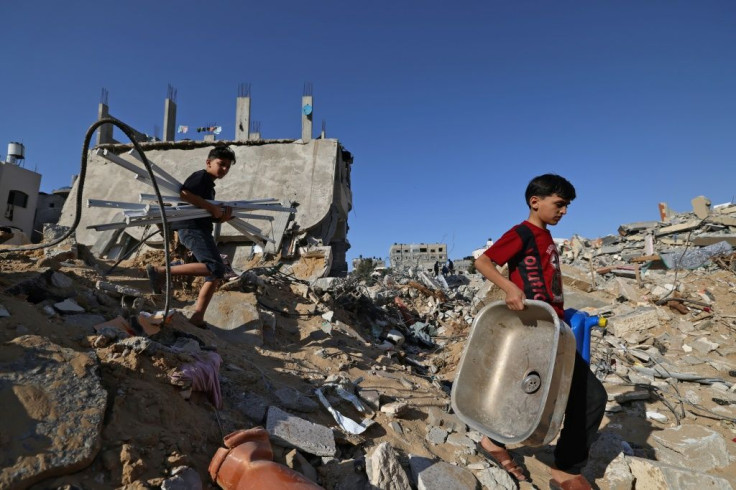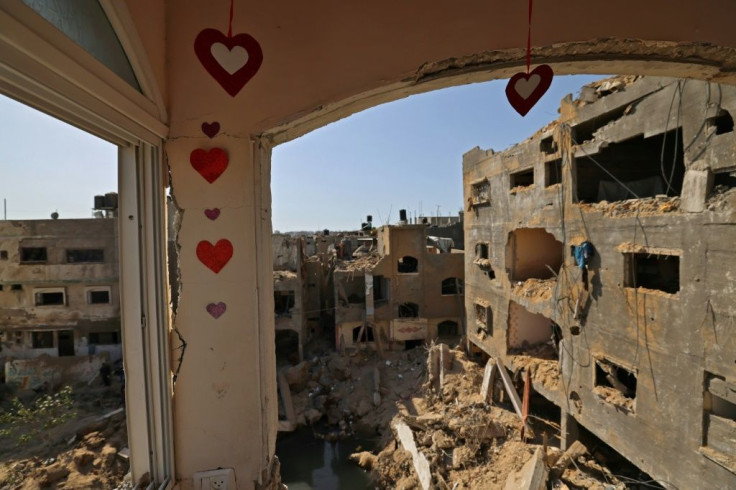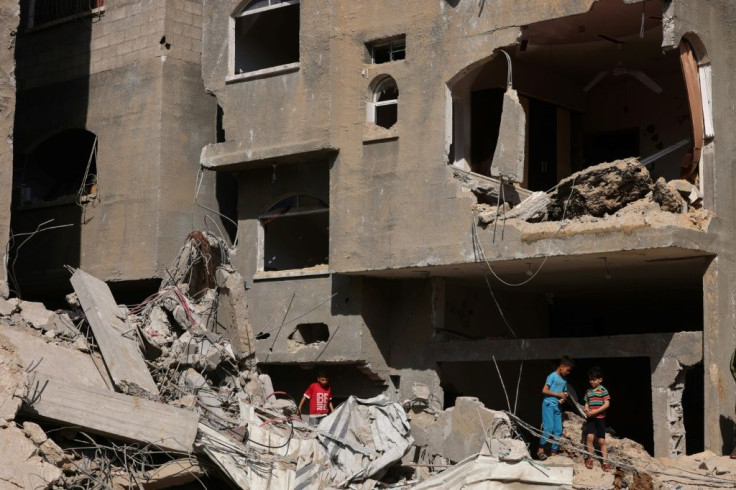In Gaza Village, Family Home Reduced To A Crater
Walking down a sandy path in the northern Gaza Strip, father of six Ramez Al-Masri points to a huge crater where his home used to be.
A ceasefire early Friday ended 11 days of relentless Israeli air strikes on the besieged coastal enclave run by Islamist group Hamas.
But the truce was too late to save the Al-Masri family's home.
"When I came home and I saw this massive hole instead of our building, I was in shock," said the 39-year-old Palestinian.
"The war isn't over, it's still there in front of me and inside me."
The house -- or what remains of it -- is in Beit Hanun, the village closest to the Erez Crossing between northern Gaza and Israel.

Last week, an Israeli officer called him late at night to tell him to flee his home with his wife and children.
They had just enough time to rush for shelter in a nearby clinic.
A few minutes later, an Israeli air strike pummelled down through their three-storey house, blasting a six-metre-deep crater in the ground, shattering the water and sewage networks and blowing out windows in nearby buildings.
In a young neighbour's bedroom, glass shards, mangled metal and lumps of concrete lay on the ground near a large red heart and a message painted on the wall: "Happy birthday, my love."

Israeli air strikes have killed at least 248 people including 66 children in Gaza since May 10, the health ministry says. Israel says fighters too have been killed.
Twelve people were killed in Israel, including a child and a teenager, with one soldier struck by an anti-tank missile, Israeli authorities say.
The Israeli bombing campaign was the deadliest since a 2014 conflict in the Gaza Strip.
In that war too, Masri lost a home, which he said had taken him all of three years to rebuild.
"Will it now again take me another three years to rebuild?" he asked.
"Will it take until the summer of 2024?"
For the moment his family is staying with relatives and waiting for aid -- local or international -- so they can rent a new home while they wait.

The 2014 war had ravaged the enclave. The Israeli army sent in ground troops who engaged in heavy clashes with Hamas, leaving buildings riddled with bullet holes.
This time the war just came from the air.
For the first time in days, tens of thousands of Gaza residents ventured out of their homes on Friday, checking on neighbours, examining ravaged buildings, visiting the sea -- and burying their dead.
In the nearby village of Beit Lahia, a tall building had been flattened to a pile of smashed concrete layers.
"There were nine dead here. We searched for them for 18 hours after the Israeli strike, which crushed everything," said 59-year-old Rabah al-Mahdoun.
A policeman nearby said everything had been permeated by the "stench of death".
Above the mountain of rubble, a foul smell grasped at the nose and throat.
Elsewhere in the strip that day, rescue workers pulled five bodies from what appeared to once have been a tunnel.
Umm Mohammed says she lost her family home and donkeys in the Israeli air strikes.
"Everything is destroyed, we have nothing left," she said.
Her children were petrified through the latest round of bombardment, she said.
"My son Akram was just four days old when the 2014 war broke out, and I had told myself I wanted to make sure he never had to live through that again," she said.
She wonders now if, after they rebuild their home, it will again be demolished in another round of violence.
"We need peace," she said.
A neighbour, Thaer, interrupted.
"Real peace means an end to the Israeli blockade on Gaza" in place since 2007, he said.
It means "being able to approach the checkpoint with Israel without being shot at, and to cross over to work in Israel".
© Copyright AFP {{Year}}. All rights reserved.





















